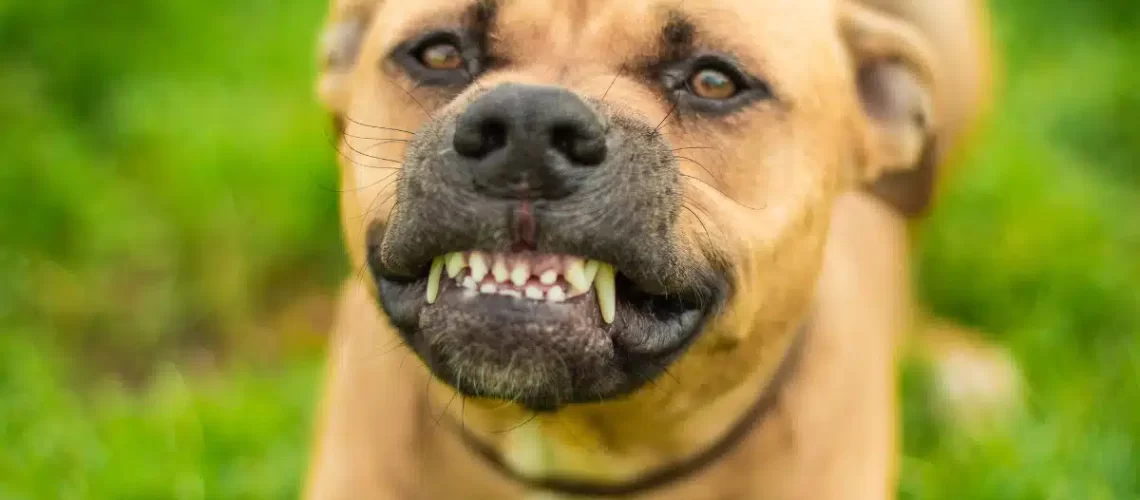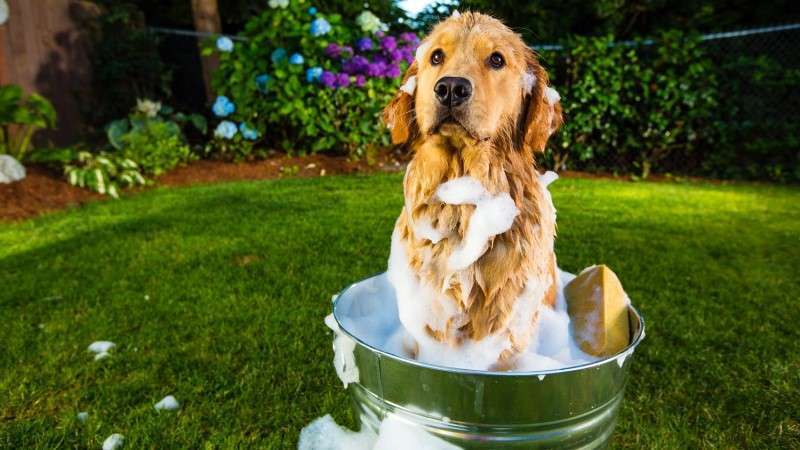Key Takeaways:
- Poor hygiene can cause a dog to have a foul odor.
- Dogs with skin infections or allergies may have an unpleasant smell.
- Ear infections can be a common cause of bad odor in dogs.
- A dog's diet can affect their body odor, so feeding them high-quality food is important.
- Regular grooming and bathing can help prevent and reduce doggy odor.
Are you tired of holding your nose every time your furry friend comes near? Does the stench from your dog make you want to run in the opposite direction? Well, fear not! Exploring the reasons behind why your dog stinks can lead to a much happier and fresher-smelling pet-owner relationship.
Understanding this topic is essential because it not only improves the quality of life for both you and your dog but also ensures a healthier environment for everyone. So, let's dive into the fascinating world of canine odors and discover how to keep your four-legged companion smelling as fresh as a daisy. Get ready to bid farewell to those unpleasant smells and embrace a new era of delightful doggie aromas!
Why does my dog sometimes have a bad smell?
Understanding the reasons behind your dog's bad smell
It can be quite puzzling when your furry friend starts emitting an unpleasant odor. But fear not, there are several common reasons why dogs may have a bad smell.
One possible cause is poor hygiene. Dogs love to explore and roll around in all sorts of things, which can lead to dirt and bacteria accumulating on their fur and skin. Another reason could be an underlying health issue, such as an infection or skin condition, which can produce an unpleasant odor.
To determine the exact cause of your dog's smell, it's best to consult with a veterinarian. They can examine your dog and provide guidance on how to address the issue.
The role of diet in your dog's smell
Believe it or not, what your dog eats can also contribute to their odor. Certain foods can cause digestive issues or flatulence, resulting in a less-than-pleasant scent. Additionally, some dogs may have food allergies or sensitivities that can manifest as skin problems or ear infections, both of which can produce odors.
If you suspect that your dog's diet is causing their bad smell, consider consulting with a veterinarian or a professional pet nutritionist. They can help you identify any potential dietary triggers and recommend appropriate changes to improve your dog's overall well-being and scent.
Common causes of a stinky dog
Poor grooming habits
Grooming plays a crucial role in keeping your dog smelling fresh. If you neglect regular bathing and brushing sessions, dirt and bacteria can accumulate on their fur and skin, leading to an unpleasant odor.
To prevent this from happening, make sure to establish a grooming routine for your dog. Regularly bathe them using a mild dog shampoo and brush their coat to remove any dirt or debris. Additionally, pay attention to their ears, teeth, and nails, as neglecting these areas can also contribute to a smelly dog.
Anal gland issues
Dogs have anal glands located near their rectum that produce a scent used for communication. Sometimes, these glands can become impacted or infected, leading to an extremely foul odor.
If you notice your dog excessively licking their rear end or dragging it across the floor, it may be a sign of anal gland problems. In such cases, it's essential to seek veterinary assistance. A veterinarian can empty the glands and provide guidance on how to prevent future issues.
How to prevent your dog from smelling bad
Maintain good hygiene practices
- Bathe your dog regularly using a mild dog shampoo.
- Brush their coat to remove dirt and debris.
- Clean their ears with appropriate ear cleaning solutions.
- Brush their teeth regularly or provide dental treats approved by your veterinarian.
- Trim their nails regularly to prevent infections and discomfort.
Ensure a healthy diet
- Select high-quality dog food that meets your pet's nutritional needs.
- Avoid feeding table scraps or foods that may cause digestive issues or allergies.
- If necessary, consult with a veterinarian or pet nutritionist for dietary recommendations tailored to your dog's specific needs.
Health conditions that can make a dog stink
Skin infections
Dogs can develop various skin infections, such as bacterial or fungal infections, which can produce a foul odor. These infections may be accompanied by symptoms like itching, redness, or hair loss.
If you suspect your dog has a skin infection, it's crucial to consult with a veterinarian. They can diagnose the specific type of infection and prescribe appropriate treatments, such as medicated shampoos or oral medications.
Dental problems
Poor dental hygiene can lead to dental issues like gum disease or tooth decay in dogs. These conditions can cause bad breath and contribute to an overall unpleasant smell.
To prevent dental problems, regularly brush your dog's teeth using a toothbrush and toothpaste designed for dogs. Additionally, provide dental chews or toys that promote good oral health. If your dog already has dental issues, consult with a veterinarian for proper treatment options.
Foods that can contribute to your dog's unpleasant odor
Just like certain foods affect our body odor, some foods can also impact the way our furry friends smell. Here are a few examples:
- Strong-smelling foods like fish or liver treats may temporarily affect your dog's breath or body odor.
- Foods that cause digestive issues like excessive flatulence can result in an unpleasant scent.
- Certain ingredients in commercial dog food may not agree with every dog's digestive system and could lead to odorous stools.
Safe and effective ways to make your dog smell better
Bathing with pet-friendly products
Gently bathing your dog using pet-friendly shampoos specifically formulated for their coat type can help eliminate odors and keep their fur clean and fresh. Be sure to rinse thoroughly to remove all shampoo residue.
Regular brushing
Brushing your dog's coat not only helps remove dirt and debris but also distributes natural oils, promoting a healthier and less smelly coat. Use a brush suitable for your dog's fur type and be gentle to avoid causing any discomfort.
Addressing dental hygiene
Regularly brushing your dog's teeth with toothpaste made for dogs can help prevent dental problems and bad breath. Additionally, providing dental chews or toys designed to promote oral health can contribute to fresher breath.
Consulting with a veterinarian
If you've tried various preventive measures, but your dog still has an unpleasant odor or shows signs of an underlying health issue, it's essential to seek professional advice. A veterinarian can examine your dog, diagnose any potential problems, and provide appropriate treatments or recommendations.
In conclusion, dogs can stink for various reasons such as poor hygiene, skin infections, or diet. It is important to regularly bathe and groom your dog, seek veterinary advice if there are any underlying health issues, and ensure they have a balanced diet to keep them smelling fresh and clean.
Why does my dog stink even though I bathe her?
If you feed your dog a poor-quality diet, especially low-quality dog food, it could be the main cause for your dog's lingering odor even after a bath. Low-quality dog food can negatively affect your dog's digestive system, leading to an imbalance in gut bacteria and resulting in a foul smell.
Why do some dogs naturally stink?
While not all dogs have a strong smell, some breeds like Labrador Retrievers, Basset Hounds, and Cocker Spaniels tend to have a stronger odor due to their sebaceous gland secretion. On the other hand, breeds like Doberman Pinschers and Poodles produce less oil and therefore have a milder smell. Regardless of the breed, it is recommended to bathe your dog whenever they start to smell unpleasant.
How often should dogs be bathed?
Most dogs that are in good health should be bathed every one to three months in order to prevent excessive odor and oil accumulation. However, the frequency can differ based on certain factors, such as the breed. Dogs with oily coats, like Retrievers, may need to be bathed every few weeks to minimize odor. In addition, regular brushing is beneficial for these dogs as it helps in removing hair and distributing oils.
How do I stop my dog from smelling in between baths?
Dry Shampoo comes in various forms such as sprays, powders, and mousses. You can even create your own dry shampoo using baking soda, cornstarch, and pet-safe essential oils. These products not only help eliminate any odors in your dog's fur, but they also contribute to the overall health and wellness of their skin and coat.
How often should you wash your smelly dog?
In reality, unless your dog has a pre-existing skin condition, they do not require regular baths unless they are odorous or particularly dirty. Typically, most dogs only need to be bathed once a month. While you can bathe them less frequently, it is not advisable to bathe them less often than every three months.
Can I make my dog smell better without a bath?
Use dry shampoo to clean the coat. Dry shampoo is a convenient option for removing dirt and eliminating unpleasant smells, especially for dogs that have a strong odor. It's ideal for situations where you believe only a bath would be effective.

















